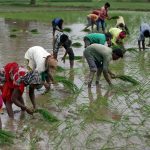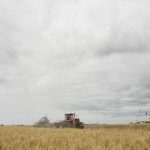We start this forecast period off with an area of low pressure over far northern Manitoba that is slowly moving off into Hudson Bay. To the west, an area of low pressure is developing over the Yukon which is helping to develop a weak ridge of high pressure over Alberta. Over southern Saskatchewan and Manitoba weak high pressure is in place.













